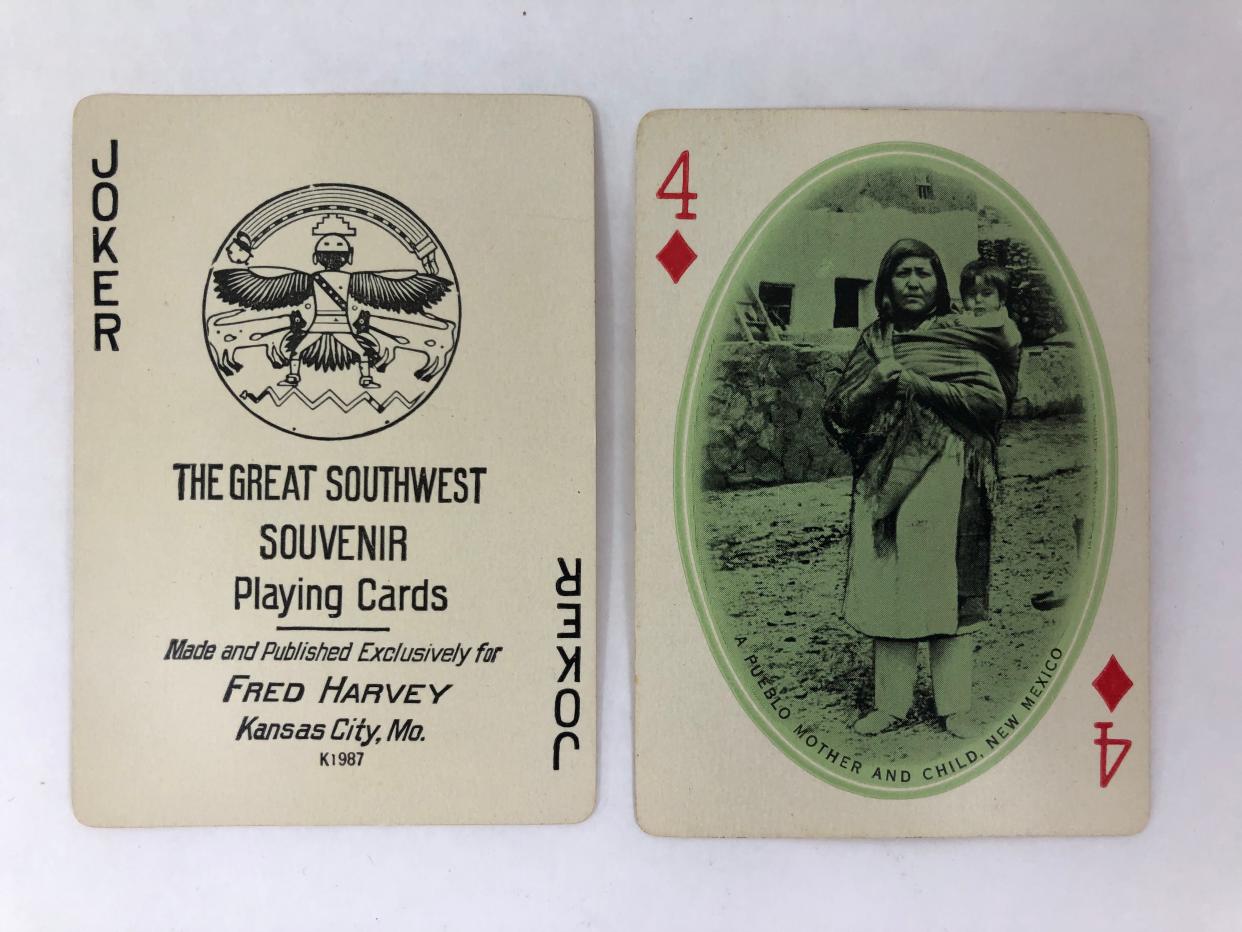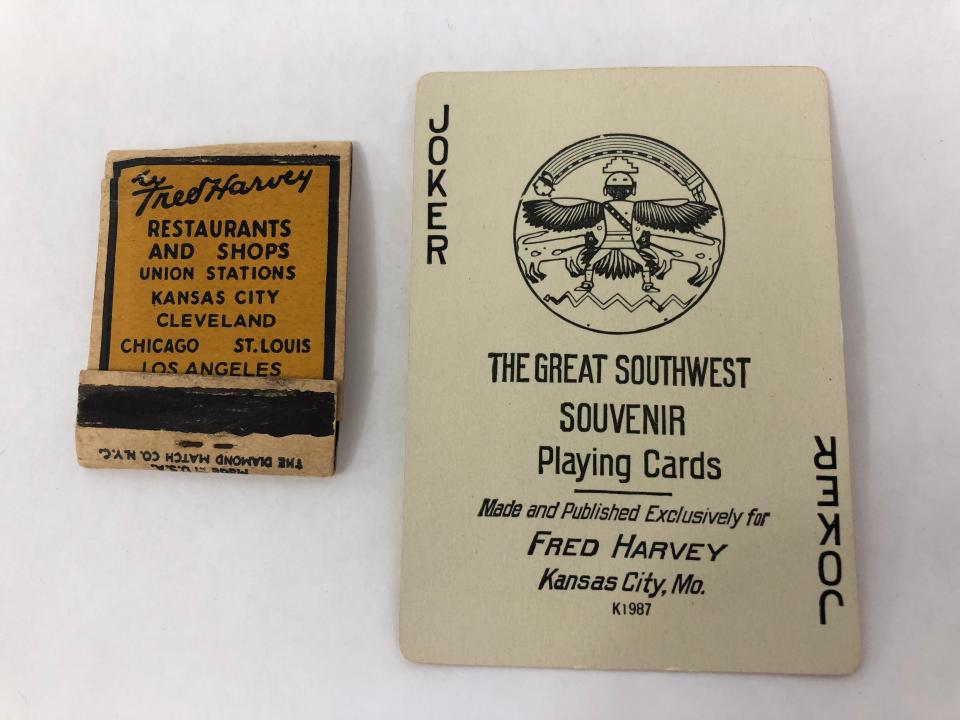Antiques: Fred Harvey and the Harvey girls

- Oops!Something went wrong.Please try again later.
- Oops!Something went wrong.Please try again later.
- Oops!Something went wrong.Please try again later.
Fred Harvey is a name that many of we card-carrying AARP members recall fondly, while it's a moniker that mostly causes confusion among the younger rank. Guy Harvey, the artist? Harvey Weinstein, the predator? In fact, Fred Harvey was a good-looking fellow who developed a range of widely patronized hospitality stops along the early American railroad lines. So ingrained in the culture was Harvey that a 1946 movie was made starring Judy Garland called The Harvey Girls.
If you rode the rails back in the day, you knew all about Harvey. If not, keep reading.
Born in London in 1835, Harvey was 17 when he immigrated to America and took a job at a well-known New York restaurant. He started at the bottom, but learned the business, and after a few moves and a marriage, settled in Leavenworth, Kansas.
Following the Civil War, he worked for a railroad company, a job that required regular travel by rail, and came to disdain the poor food and services then available to travelers. In 1876, he made the deal of a lifetime when he shook hands with the head of a major rail line permitting Harvey to open rent-free eating establishments along its routes. Before long, there were 84 Harvey House restaurants offering better food and service than any traveler had enjoyed before.

Apart from his commitment to improved hospitality, Harvey understood that most long-distance rail passengers were men and thus introduced the Harvey Girl: a cadre of comely young women who worked at Harvey's outposts and lived in company quarters nearby. The rules were strict, including chaperones and curfews, but more than 500 Harvey Girls ultimately found husbands through their work at the firm.
Harvey also recognized that many travelers wanted more than just a meal and a room, so he opened gift shops with all types of sundries and souvenirs, many carrying the Fred Harvey imprint.
Over the years, those items have formed a collectible category all their own.
After Fred's death in 1901, his son Ford took over the business and continued to expand. In 1911, his Casa del Desierto opened in Barstow, a sprawling Spanish-Moroccan structure (in what then was the middle of nowhere) that served as a Harvey House hotel and Santa Fe Railroad depot.

Nonetheless, Ford's biggest leap was the opening in 1905 of the El Tovar Hotel along the rim of the Grand Canyon. Conceived as a flagship property for Harvey, it was built at a cost of $250,000 (some $8.5 million today) and was widely regarded as among the nicest accommodations in all the West. Over the years, the El Tovar played host to countless luminaries and was itself designated a National Historic Landmark in 1987. It remains open to this day.
With changing times came changing modes of transportation, and travel by rail began to lessen. By the end of WWII, most Harvey Houses had closed, giving way to the advent of the motor hotel. Still, Fred Harvey remained in business until the 1960s when the firm was finally sold in 1968 to a hospitality conglomerate. Nonetheless, souvenirs still abound from the company's 90 years in business, recalling a time when travel was leisurely and all America was on display from the windows of a train car. How things have changed.
Mike Rivkin and his wife, Linda, are longtime residents of Rancho Mirage. For many years, he was an award-winning catalogue publisher and has authored seven books, along with countless articles. Now, he's the owner of Antique Galleries of Palm Springs. His antiques column appears Sundays in The Desert Sun. Want to send Mike a question about antiques? Drop him a line at info@silverfishpress.com
This article originally appeared on Palm Springs Desert Sun: Antiques: Fred Harvey and the Harvey girls

